How to Freeze Asparagus
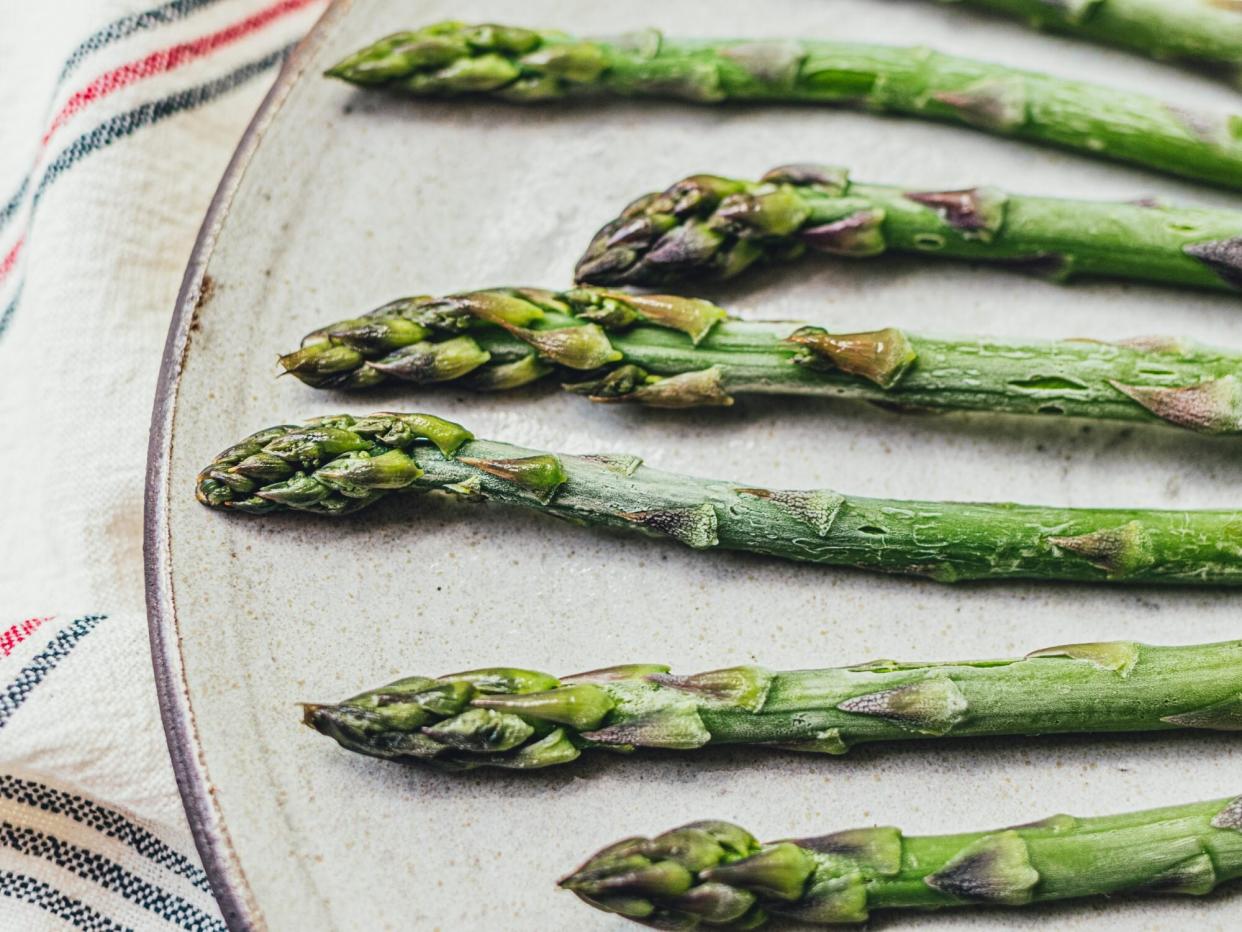
Courtney West/Southern Living
Peak asparagus season is very brief, just a few weeks in most growing zones. Even still, you can buy asparagus year-round from other places, which means asparagus is always welcome on dinner plates or holiday buffets alike.
If you ever find yourself with too many bundles, you can and should freeze asparagus to use it later. In fact, it's handy to have some asparagus in the freezer at all times. You can pop some into stir-fries, mix a few spears into a casserole, or spruce up a pasta dish with a handful of frozen pieces.
But you can't just freeze fresh asparagus spears. You'll need to blanch them first. Blanching asparagus preserves the color and nutrition, and it keeps the texture and taste as close to fresh as possible. If you freeze raw asparagus, you can expect a mushy, mealy mess when it's used.
How to Freeze Asparagus
Asparagus doesn't last long in the fridge. Even if you know how to store asparagus, you're only going to get three to five days out of a bundle. Freezing asparagus buys you more time and prevents you from wasting the money you spent.
Since you can't freeze fresh asparagus, you need to take a few steps to prepare asparagus spears for the freezer. Thankfully, these are pretty simple, and you'll have asparagus ready to be frozen in no time.
Equipment you'll need:
Stockpot or large saucepan
Tongs or slotted spoon
Paper-towel lined baking tray
Bowl of ice water
Paper towels or tea towel for drying
Prep the Asparagus for the Freezer
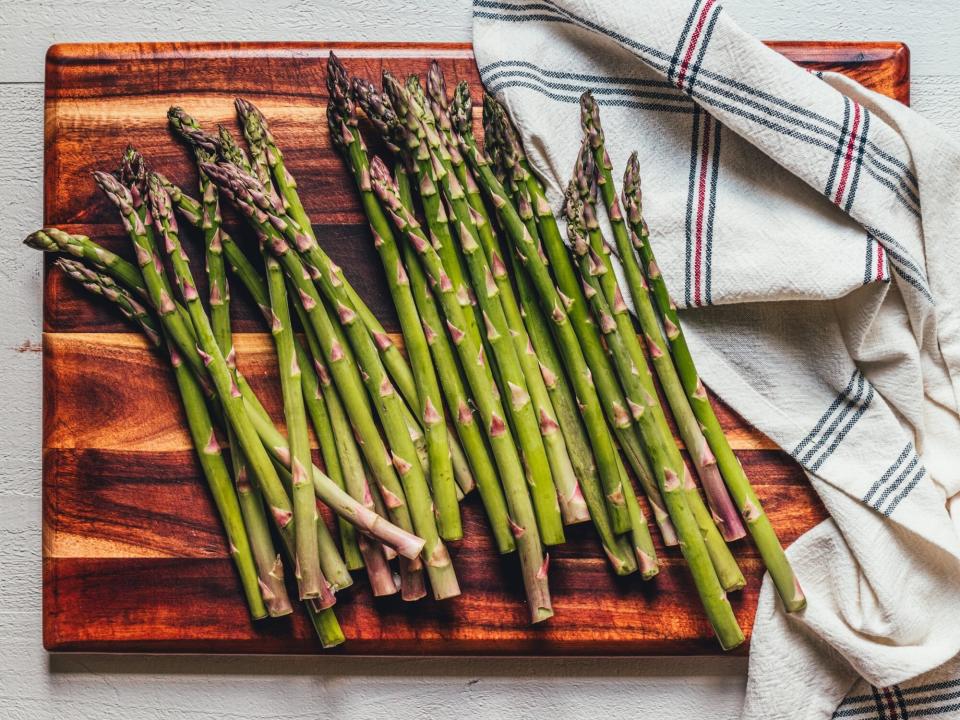
Courtney West/Southern Living
1. Sort the asparagus spears.
Break the rubber band, and fan out the bundle of spears. Look for any that are soft, shriveled, dark, or soggy. These spears won't make it through a freeze, so toss them.
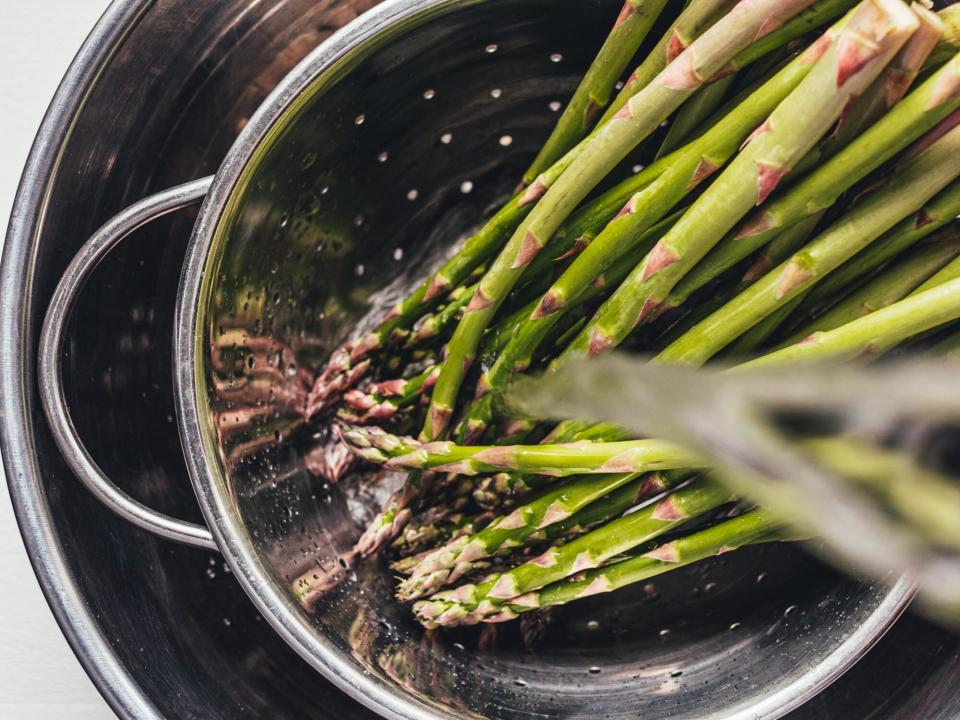
Courtney West/Southern Living
2. Wash the asparagus.
Pop the asparagus into a colander, and give them a good rinse under cold running water in the sink.
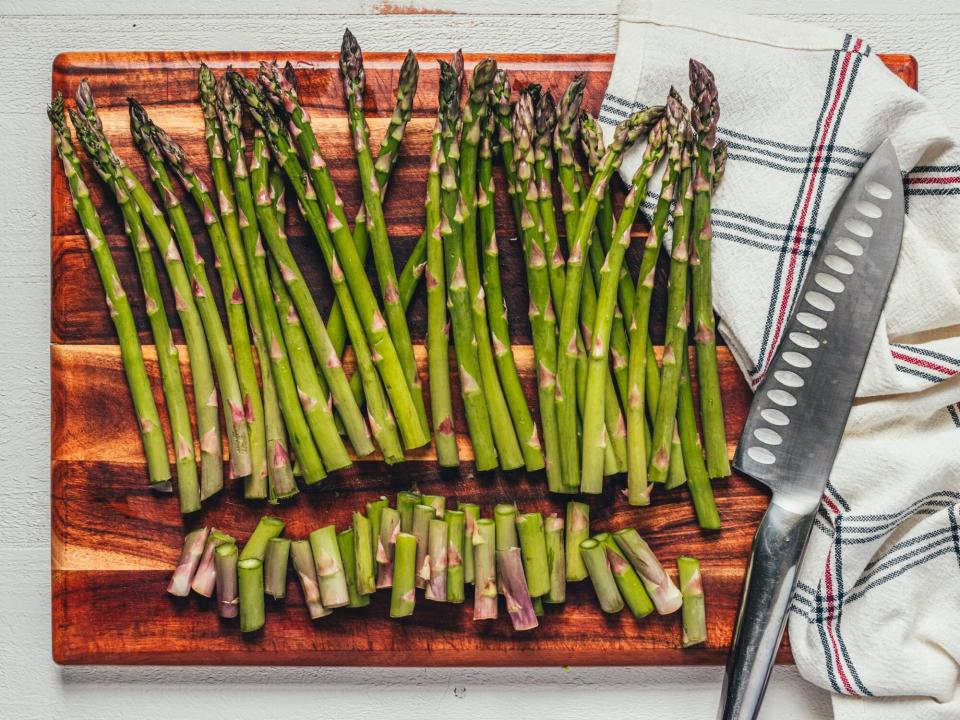
Courtney West/Southern Living
3. Trim the ends.
Those woody, dry ends are not worth eating, so remove them. You can trim asparagus by using a chef's knife to cut about one inch off all the ends.
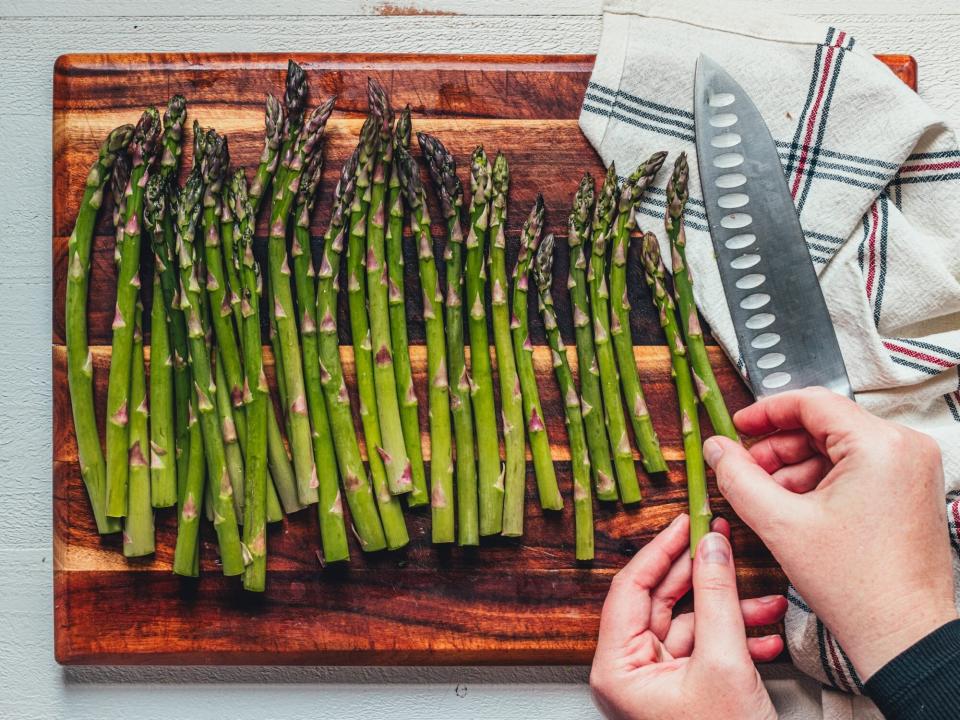
Courtney West/Southern Living
4. Sort the spears.
If your bundle of asparagus has spears of all difference thicknesses, go ahead and sort them based on size. Large spears will need a bit longer to cook than ones that are closer to pencil sized, so they'll go into the boiling water first. If you separate them now, you can more easily cook in batches so everything comes out perfectly blanched, with nothing overcooked.
Blanch the Asparagus
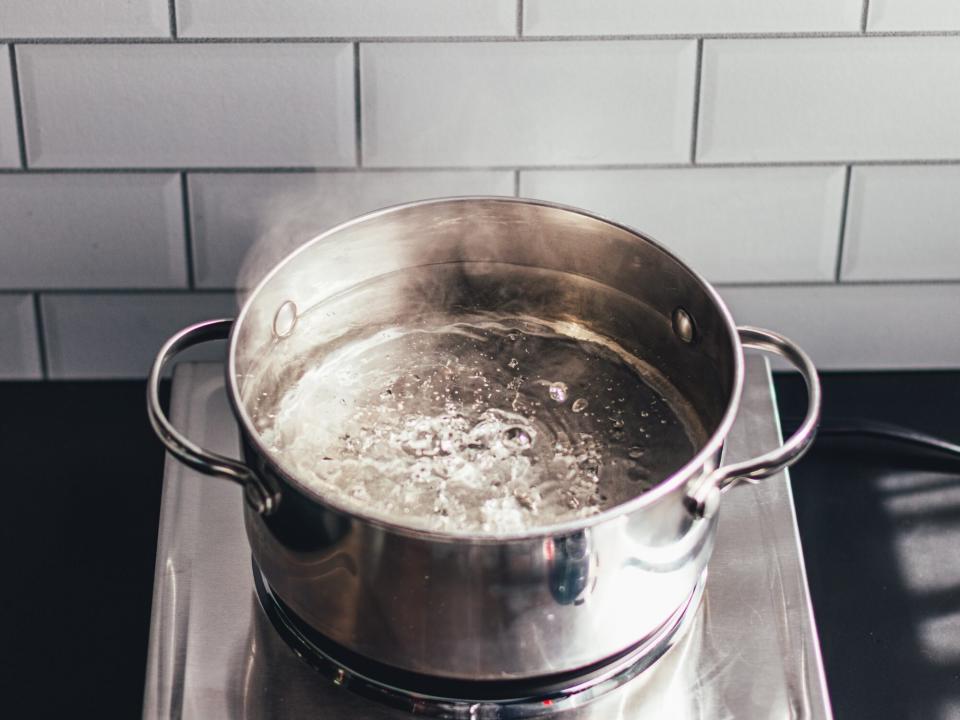
Courtney West/Southern Living
1. Bring a stockpot or large saucepan of water to a rolling boil.
While you wait for it to boil, fill a large bowl with ice water, and put several paper towels on a baking tray.
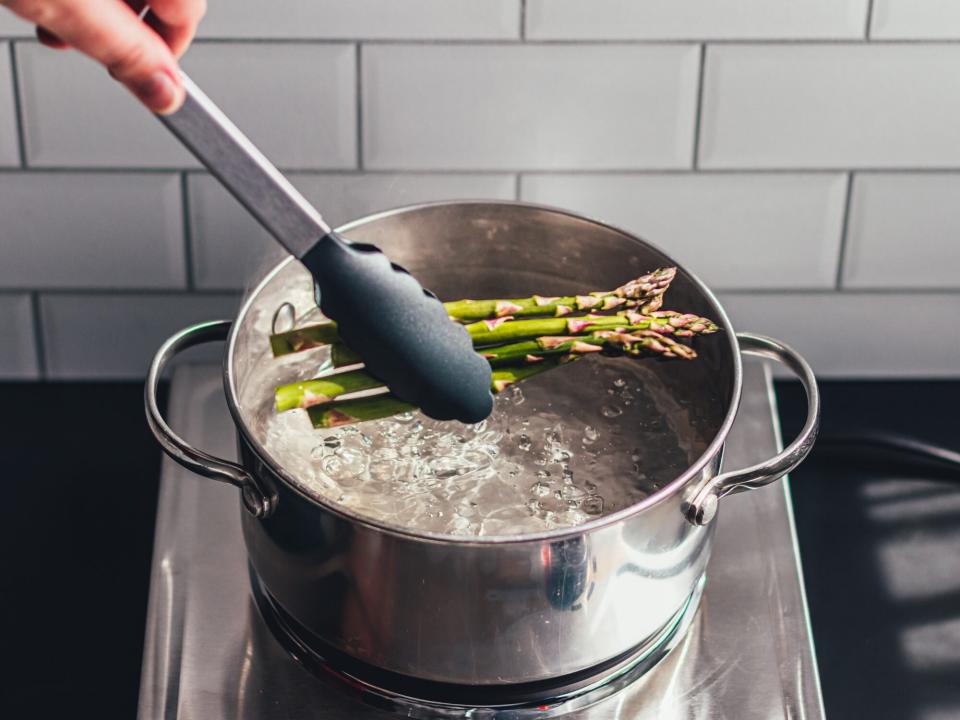
Courtney West/Southern Living
2. Gently drop asparagus into boiling water.
Cook 2 to 4 minutes. If you have spears of different sizes, start with the thickest asparagus. Wait about 15 seconds, then add the next batch. End with the thinnest stalks of asparagus so they don't overcook.
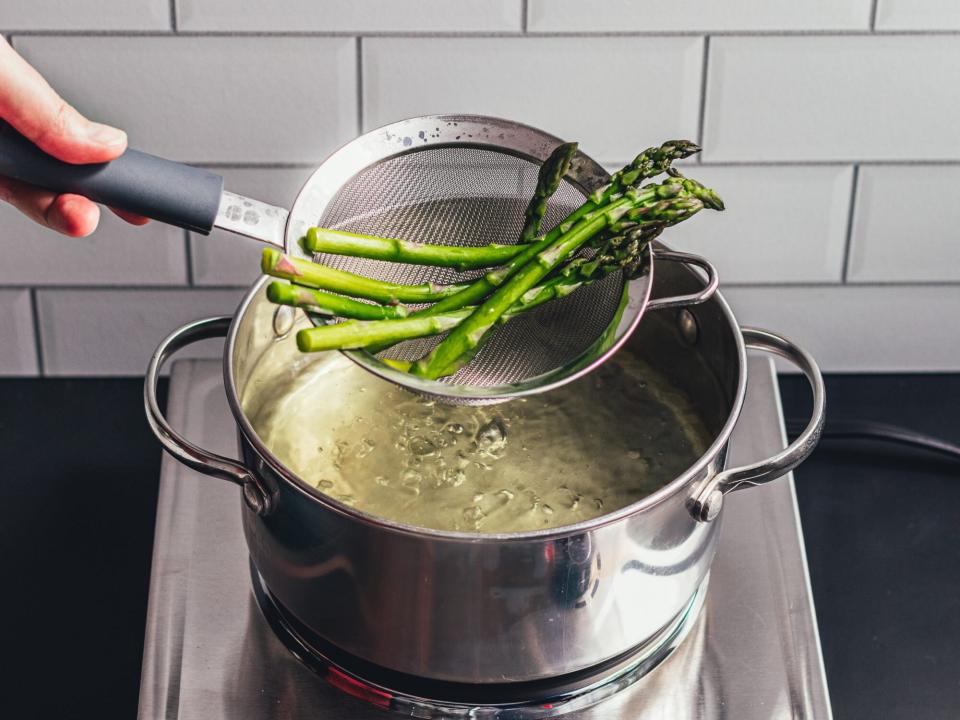
Courtney West/Southern Living
3. Remove the asparagus from the water.
You can drain the spears into a colander in the sink, or use tongs or a slotted spoon to pull the asparagus out of the water. Immediately plunge the asparagus into the bowl of ice water, and let cool for the same amount of time the asparagus cooked in the boiling water.
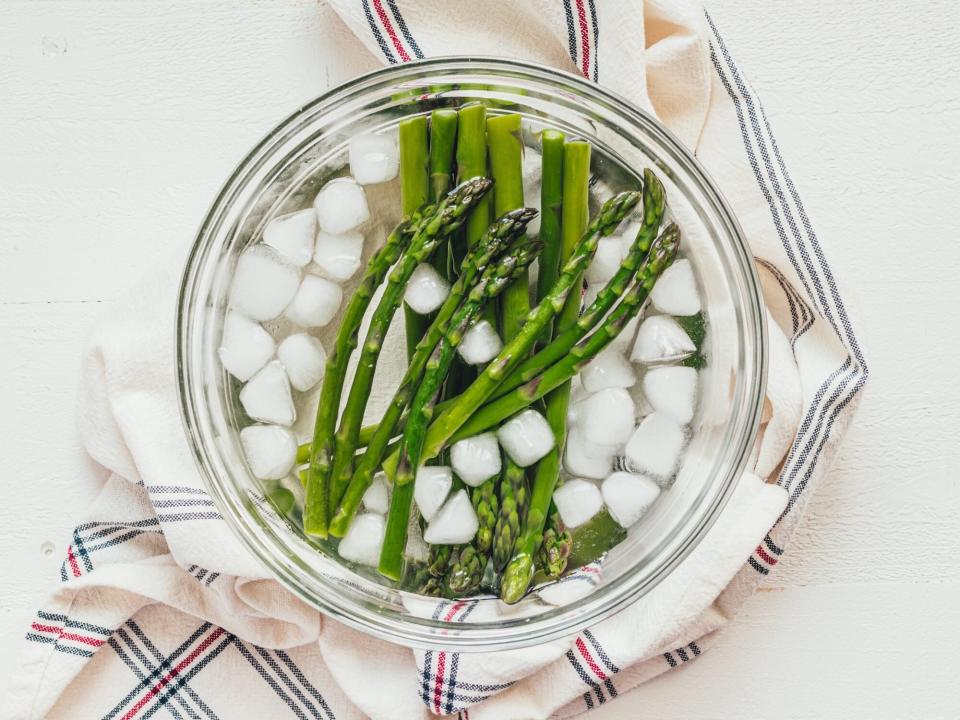
Courtney West/Southern Living
4. Pull the asparagus out of the ice bath.
Spread in a single layer on the paper towel-lined baking trays. Thoroughly dry.
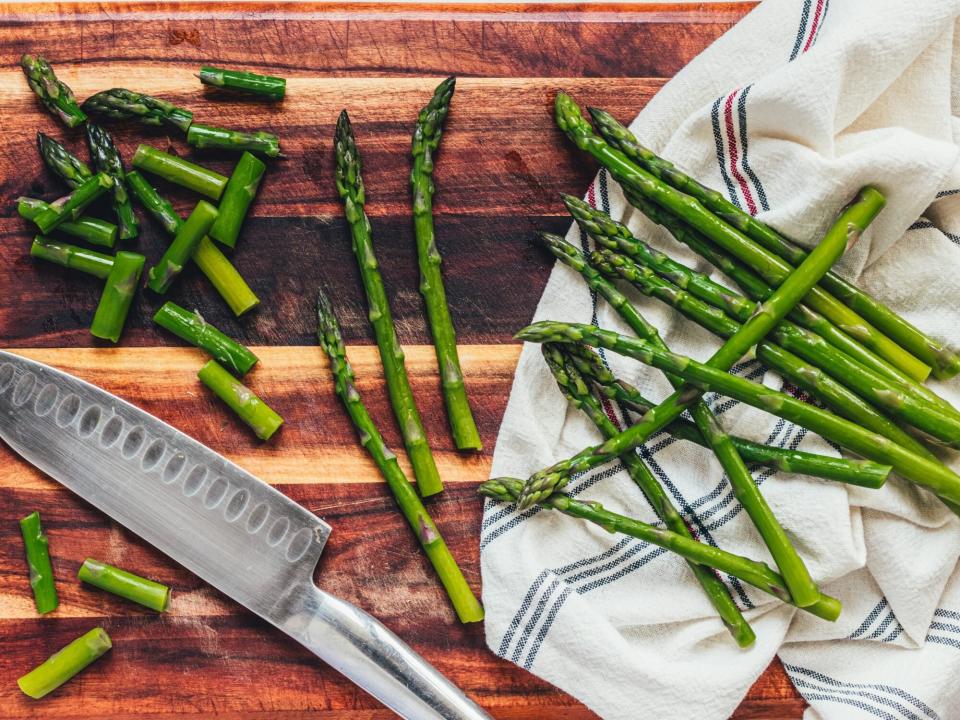
Courtney West/Southern Living
5. Cut the asparagus to size.
If you want shorter one- to two-inch pieces, now is the time to cut the spears down. They'll be harder to chop when frozen. But you don't have to cut them—you can leave long spears intact.
Freeze the Asparagus
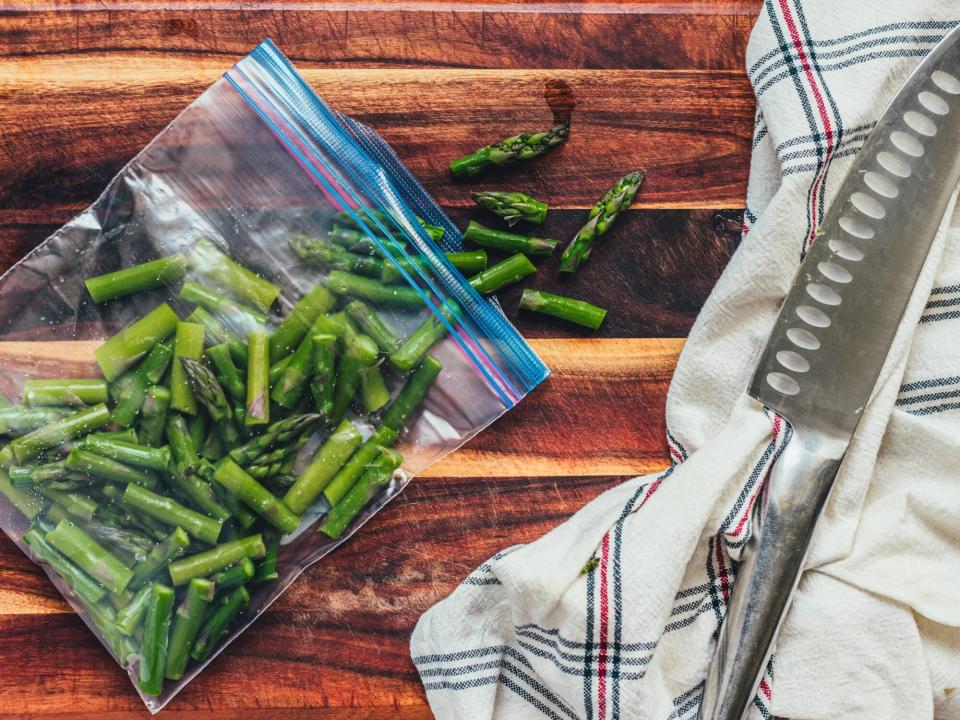
Courtney West/Southern Living
1. Transfer the asparagus to freezer bags.
Once the asparagus has been dried and cut, move the pieces or stalks into resealable zip-top plastic bags. Push as much air out as possible before sealing.
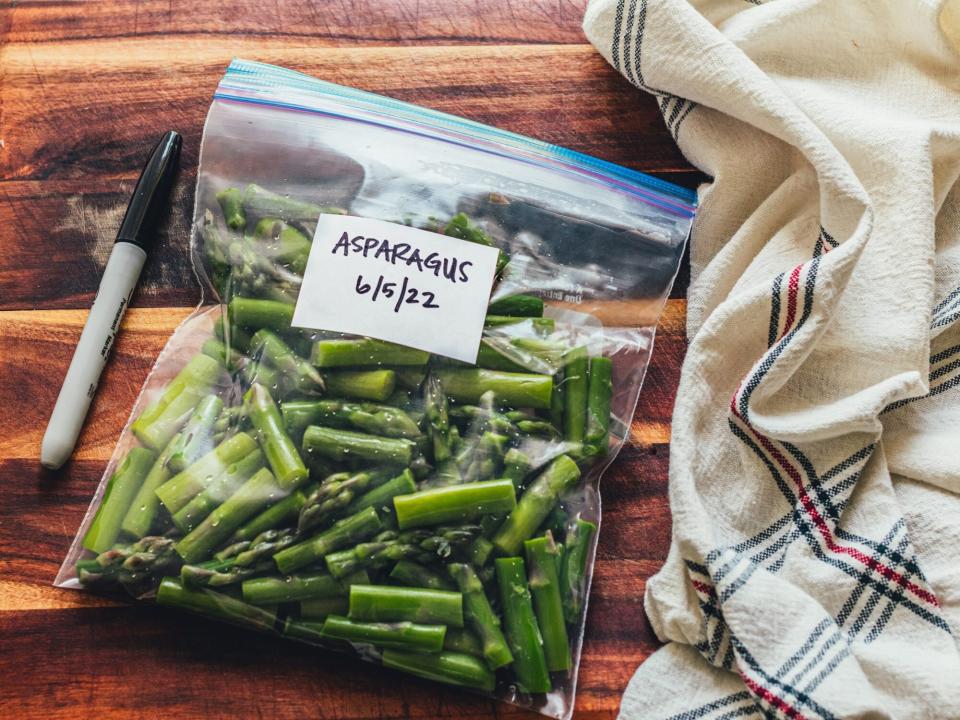
Courtney West/Southern Living
2. Label the bags.
Write the date and the name of the food on the outside of the bag so you can easily find it in the freezer and know if it's still good to use.
Can You Freeze Cooked Asparagus?
Yes, you can freeze cooked asparagus for up to two months.
If you lots of leftovers after a holiday party or barbecue, you don't have to toss those spears. You can instead freeze them in an air-tight container. However, you won't be able to eat them the way you had planned to before. The asparagus, which is fully cooked at this point, will turn limp if you try to thaw it and reheat it.
Instead, you should use the frozen asparagus in dishes where the tender texture is a bonus, such as casseroles, quiches, pasta dishes, and soup.
Can You Freeze Fresh Asparagus Without Blanching It?
You can freeze fresh asparagus, but you won't enjoy the results. Frozen fresh asparagus is prone to turning mealy and mushy in the freezer.
Blanching asparagus, besides helping preserve its color, locks the asparagus in a par-cooked state. That means the asparagus will have a better texture once it's thawed and heated back up.
How Long Does Frozen Asparagus Last?
Blanched asparagus that is frozen will last up to a year, but for the best flavor, use within eight months.
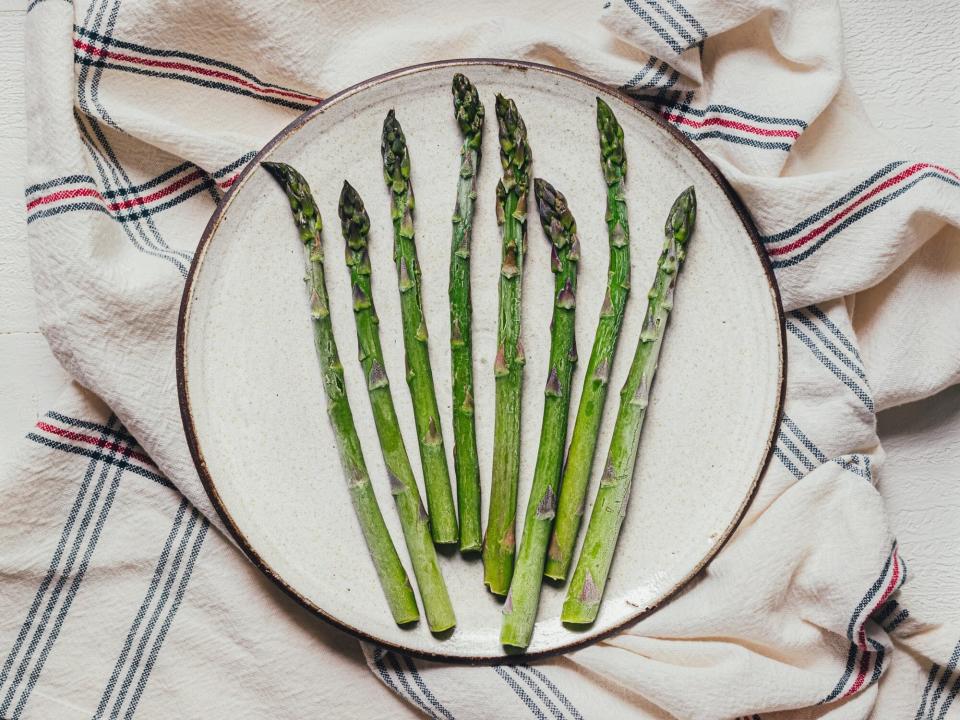
Courtney West/Southern Living
How to Use Frozen Asparagus
You shouldn't plan to use frozen asparagus the way you would fresh. In other words, you can't thaw and then roast asparagus asparagus spears.
Instead, you should use frozen asparagus where its tender texture and vibrant color will be a boon. That includes pasta dishes, risotto, soups, quiches, casseroles, and stews.
In these dishes, the asparagus pieces or spears can gently reheat in the cooking process and gradually increase doneness so each bite still retains some crunch.
Try frozen asparagus in asparagus recipes like Asparagus Frittata, Chicken Fricassee With Spring Vegetables, and Ham and Noodle Casserole.
If you do want plain asparagus, you can use frozen asparagus. But don't try to roast or bake it. Instead, add the frozen asparagus to a hot frying pan, and quickly sear it with a bit of olive oil or butter. You'll only need to cook it a minute or two to warm up the pieces and make them tender again. Any longer (or on a lower heat), and the asparagus will turn mushy.
Do you need to thaw frozen asparagus?
No, you do not need to thaw frozen asparagus. In fact, thawing asparagus will likely result in something akin to a puddle.
Instead, throw frozen asparagus right into whatever dish you're making. The temperature of the hot dish, or the baking time if you're making something like a quiche or tart, will gently warm the asparagus back up so it's crisp-tender and ready to eat.
Related: Strange Smell After Eating Asparagus? Here's Why That Happens

